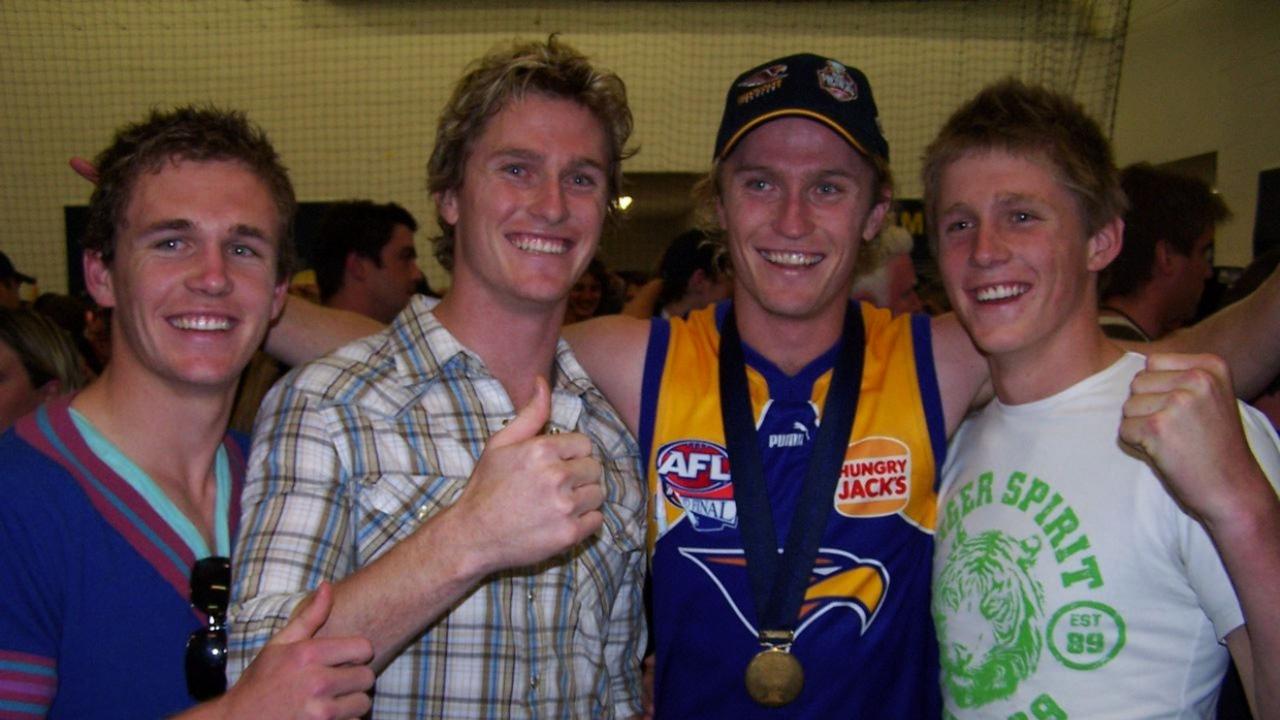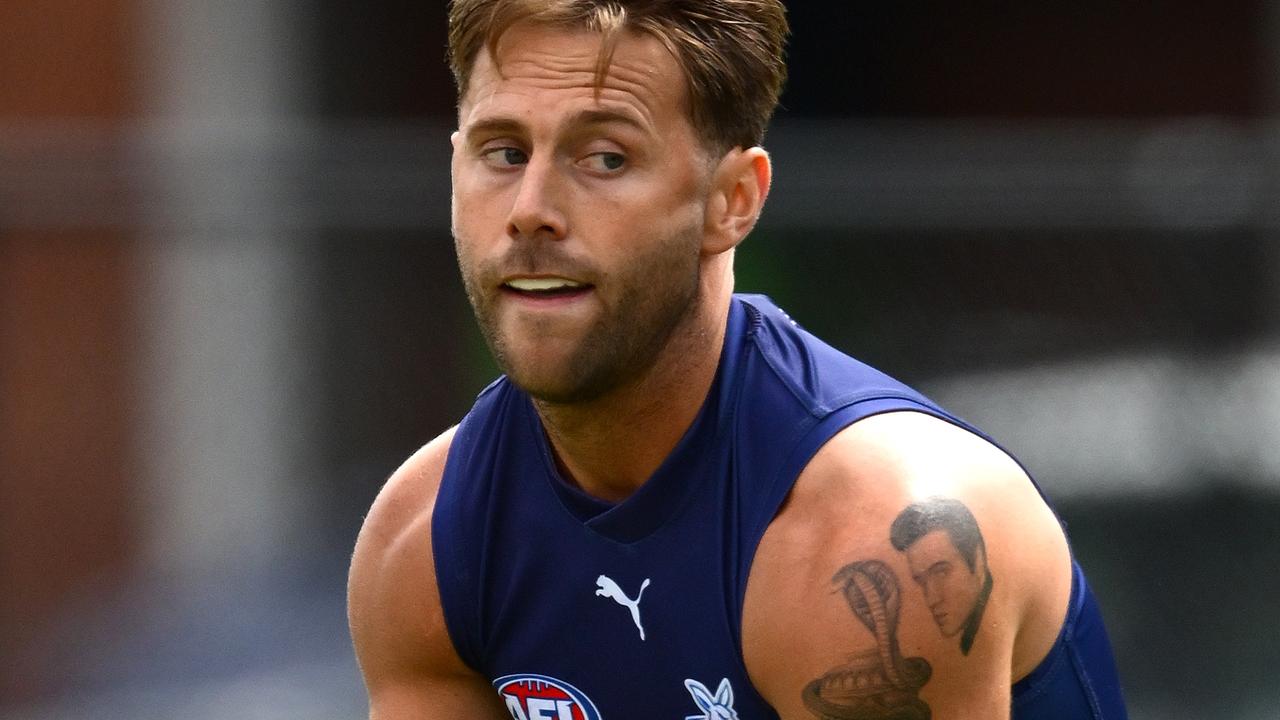Coaching legend Mick Malthouse says the attitude regarding sacked coaches needs to change
Sacked. It’s the dirtiest word in football. And for AFL coaches, it is usually a point of no return. But Mick Malthouse says that attitude is wrong, and it’s time for clubs to wake up to what they’re missing.
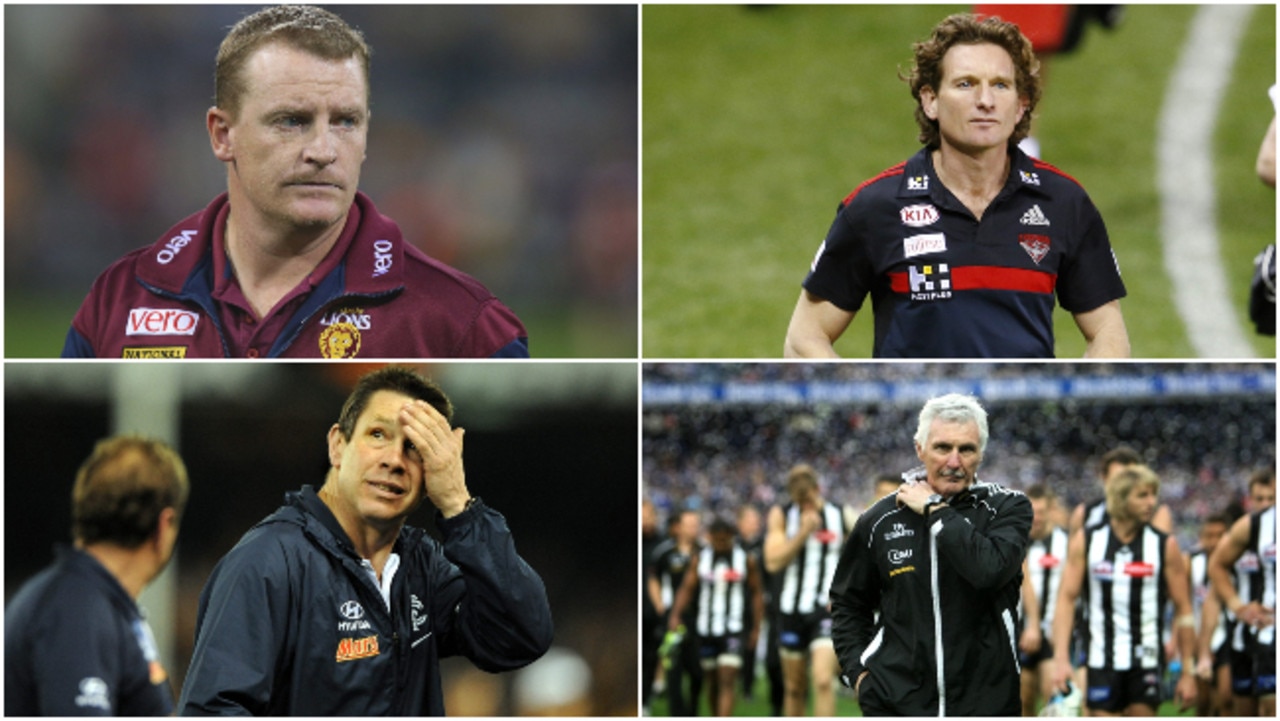
Expert Opinion
Don't miss out on the headlines from Expert Opinion. Followed categories will be added to My News.
Sacked. It’s the dirtiest word in football.
No matter how you paint it, sacked is sacked. And when it happens publicly, partway through a season, the coach’s name, it seems, is muddied forever.
But it shouldn’t be.
CLICK HERE TO SUBSCRIBE TO THE ‘SACKED’ PODCAST
Plenty of coaches have gone from one club to another, on their own terms or by mutual consent. I did, as did Ross Lyon, John Worsfold, Paul Roos, Kevin Sheedy, Leigh Matthews, Denis Pagan, Malcolm Blight, Allan Jeans, Tom Hafey, and the list goes on.
A lot of these coaches had as much success, if not more, at their second and third clubs, as their first. Mainly because they took lessons learned from their former clubs with them.
And yet, when it comes to giving a second chance to a coach who has been sacked, it’s as though he is bloodstained.
Why?
TIPS: SEE WHO THE EXPERTS ARE PICKING IN R18
TEAMS: SEE ALL THE INS AND OUTS FOR ROUND 18
SUPERCOACH: YOUR GUIDE TO A HUGE WEEKEND
I have no doubt that at the end of my six enjoyable and challenging years at Footscray that I was a better coach going into my first year at West Coast.
I was more experienced. I knew the competition better. I was cementing a game structure I thought would carry through to finals on a consistent basis. I dealt with players and different personalities better and I had a better understanding of club boards and how they operated.
Ten years down the track I was a more confident and better equipped coach again, moving to Collingwood.
That’s what happens with time and experience. You learn from every game, every season, every challenge and every highlight.
Recent history is littered with rookie coaches who didn’t work out at their given clubs. They lasted five years or less, and had few to no finals appearances.
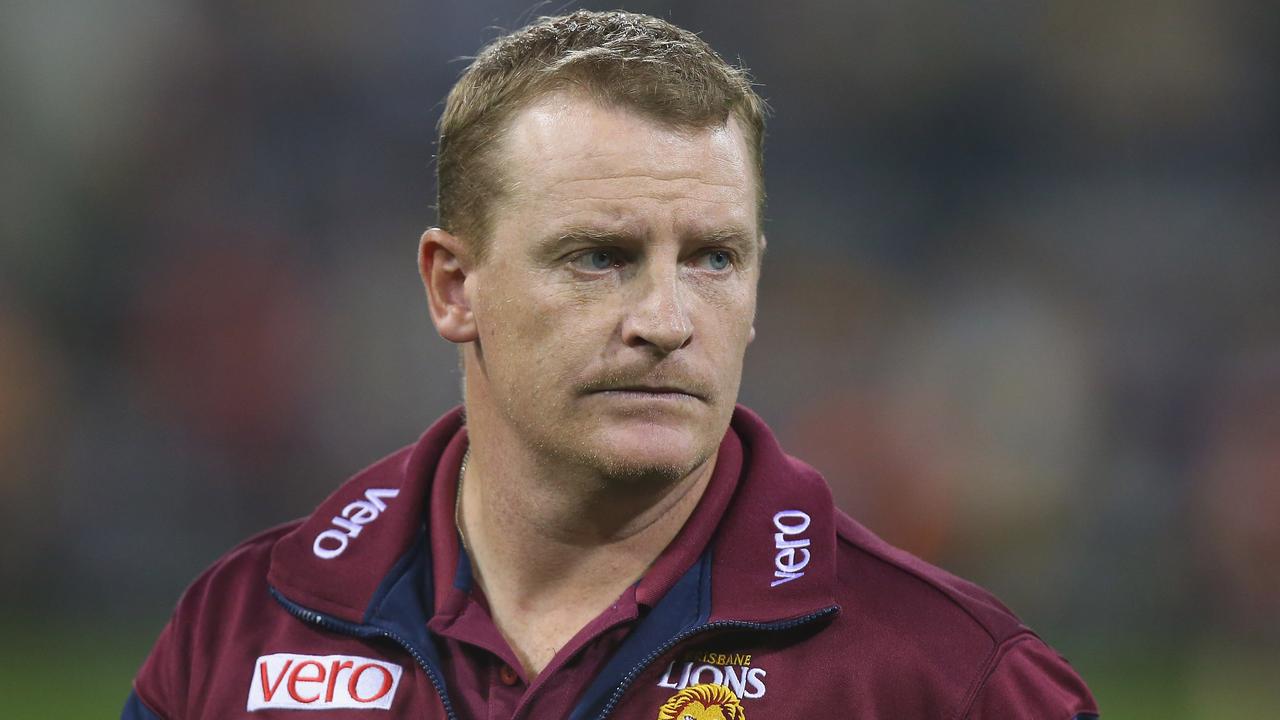
Brendon Bolton, Scott Watters, Mark Neeld, Brenton Sanderson, Michael Voss, Justin Leppitsch, Guy McKenna, James Hird, Brett Ratten, Matthew Primus, Mark Harvey, Tony Shaw, Danny Frawley and Tim Watson.
For those who have gone on to become senior assistant coaches at AFL clubs, the experience gained in this role is invaluable.
In many respects they would have had a better chance to view the game without the pressure of being the one person held accountable each week.
They’ll have closely watched another senior coach and how he goes about his tasks. From the inner sanctum they’ll have witnessed what players do and don’t respond to. They’ll have been part of game strategy meetings and player selection.
In a way they have served an apprenticeship twice.
I hope St Kilda’s appointment of Brett Ratten as caretaker coach isn’t tokenism, but instead a genuine attempt to give a bloke a second chance.
Ratten has been here before. He took over as caretaker coach of Carlton when Pagan was sacked late in 2007 and went on to be the senior coach for the next five years.
He has since worked under Alastair Clarkson at Hawthorn and tasted premiership success at the Hawks three times, plus the challenge of a rebuild.
Ratten would no doubt have compared what he did at Carlton to what Clarkson does at Hawthorn and deducted from this what he needs to do as senior coach of St Kilda.
I hope for Brett’s sake he isn’t judged on a win-loss ratio with only six games left and the team in such a vulnerable position.
The Saints’ bookends — Paddy McCartin and Jake Carlisle — have been missing for most of the season. Their first-round draft pick, Max King, hasn’t played a senior game. Their captain Jarryn Geary was cut down by two unlucky contact injuries and played just five matches. Their 2018 best and fairest Jack Steven has played just four times. And their star recruit, Dan Hannebery, has managed only two games.
It’s a big ask for Ratten to turn things around with such little time to do so.
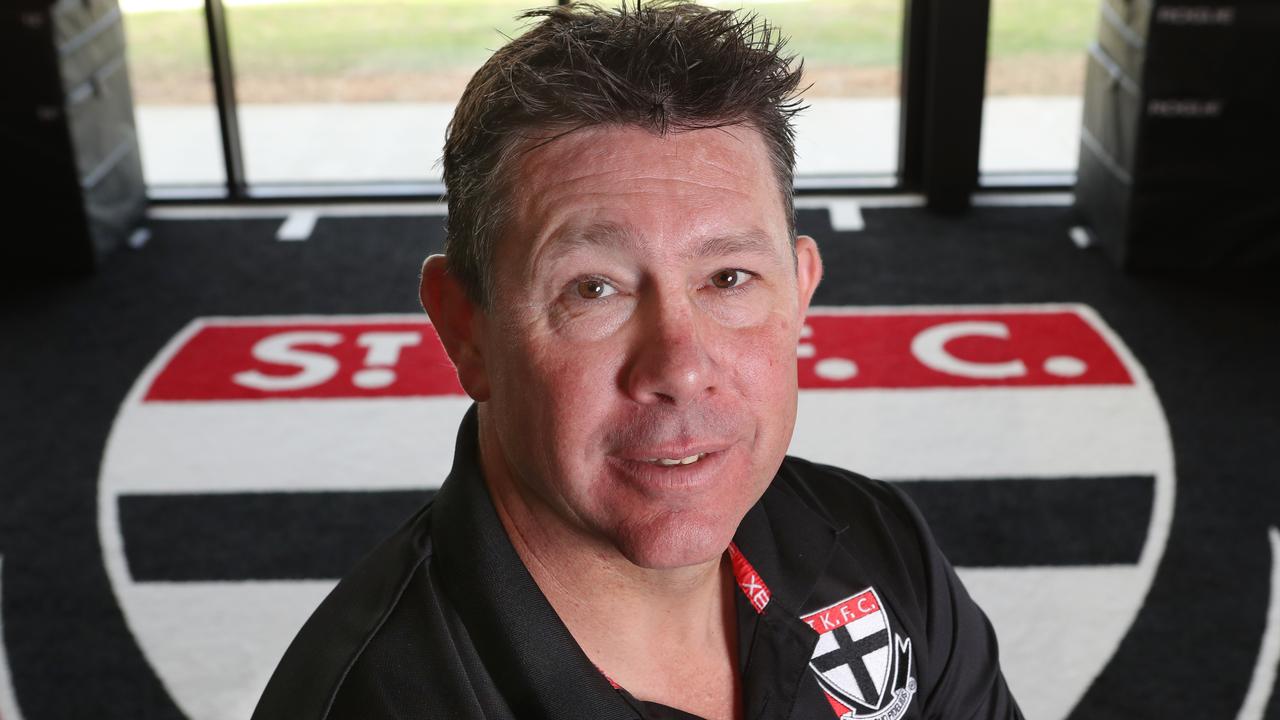
St Kilda takes on the Western Bulldogs on Sunday, who are on the up and in a win-only situation.
Then it’s the Demons, looking for late scalps and pride. To the fortress to face Adelaide, then home for Fremantle and Carlton, and back on the road to finish the season against the Swans in Sydney.
There isn’t really a blueprint for clubs who take on a sacked coach, because of the reluctance to do so in the past.
Way back when, Tony Jewell lost his job at Richmond (a year after winning a premiership) and only lasted a season and a half at St Kilda. Gary Ayres got the sack after five years at Geelong and then took the Crows to three finals series in five years at the club. And after five seasons of finals from eight at Sydney, Rodney Eade was shown the door before he coached for another seven years at the Bulldogs.
That’s very few examples from a high number of over-qualified assistant coaches.
I’m all for an unproven rookie coach being given a chance — just look at the way Rhyce Shaw and David Teague have taken on the challenge. Every coach has to start somewhere.
But I’m also for second chances.
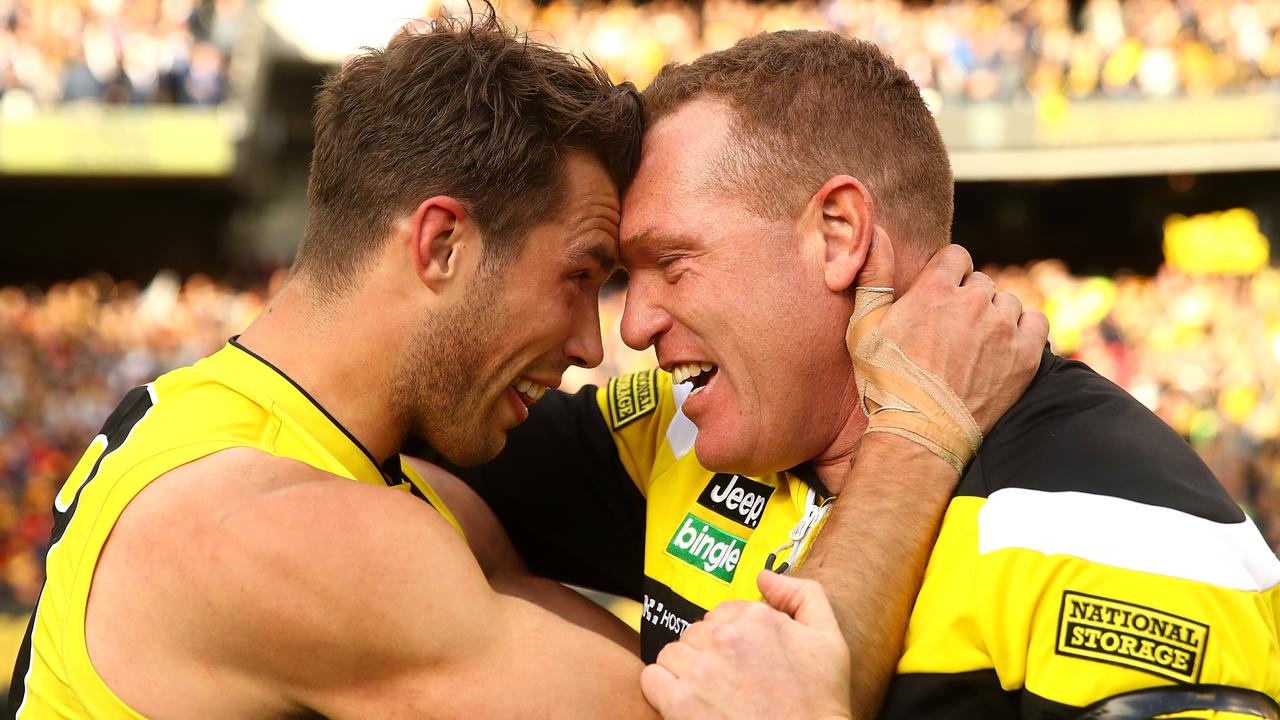
So much has to do with the team you take over. Chris Scott, after assisting at Fremantle, stepped into a role where Geelong was cherry ripe and won a premiership in his first season. He has since had to remodel to get the Cats back to the top.
Damien Hardwick arrived at Richmond when the club had finished 15th and faced a long, tough road to premiership glory.
John Longmire and Nathan Buckley both took over clubs that had consistently played finals and won recent premierships, while Luke Beveridge and Clarkson had to do the hard yards to climb the ladder for a premiership tilt.
It won’t be smooth sailing for whoever gets the St Kilda job.
Two club greats who should be on the coaching short-list are Robert Harvey and Lenny Hayes.
Two-time Brownlow medallist Harvey has assisted at three clubs where he’s seen success and struggle, and can use that to his advantage. There is not a person in football who has a bad word to say about him.
Hayes is in his fourth year on the coaching staff at Greater Western Sydney and would also come with great credentials.
He was a quiet achiever as a player, tough as nails with a wonderful work ethic. From all reports he is a natural for the job.
The next six games are big for Ratten, a test he is well equipped to handle.
If people can get past the stigma attached to the word “sacked” and look at credentials on their merit, then second chances will be equal to first chances.



